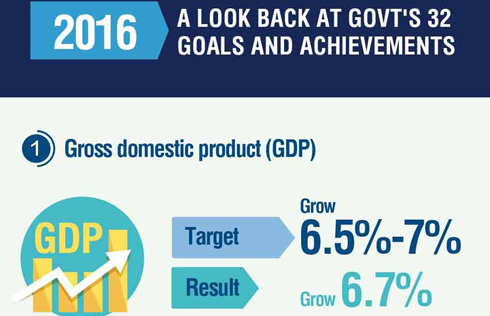Strong stimulus plan not expected
China does not intend to introduce a "flood irrigation" type of strong stimulus plan and should avoid new excessive capacities and redundant construction projects, said a senior official of the country's top economic planner.
"Some people might have confused the definition of total fixed assets investment and the concept of 'investment stimulus plan'," the National Development and Reform Commission's secretary-general, Li Pumin, said at a news conference on Wednesday.
Li made the remarks amid vigorous discussion, and even skepticism, about the widely reported, massive amount of fixed asset investment set as targets by 23 provinces, municipalities and autonomous regions for this year. The targets were recently released.
Data from the National Bureau of Statistics shows that China's fixed asset investment rose by 7.9 percent to 60.65 trillion yuan ($8.82 trillion) last year. In the meantime, the coun? try was giving priority to the implementation of step-by-step reform to boost consumer or investment demand in the short term to stimulate economic growth.
"At such a growth pace, the figure might exceed 65 trillion yuan by the end of 2017-larger than the media's prediction," Li said.
Unlike the stimulus package that China leveraged to anchor the economy years ago, investments in fixed assets will boost economic development in a healthy and steady way and will promote social harmony and stability, Li said.
He added that fixed asset investment is the summation of investment from different sources including the government, nongovernment organizations and foreign investors.
It refers to the "aggregation" rather than the "increment" of investment, Li said. By contrast, an "investment stimulus plan" is only applied when a country takes the initiative to increase the size of governmental investment to stimulate domestic demand and stabilize growth, he said.
The comments followed Li's elaboration at a news conference on the country's 13th five-year plan for a modern transportation system worth at least 2.6 trillion yuan. In addition to the huge investment target, China has set goals to extend the railway network by 30,000 kilometers, more than 30 percent of which will be high-speed railway, add 320,000 km of roads and build more than 50 new civil airports.
He Jingtong, a business professor at Nankai University in Tianjin, said that in the long run, China's growth will be less capital intensive and investment driven, indicating that government decision-makers will increasingly evaluate projects based on their economic, environmental and operational efficiency.
"Overall, the modernization of China's transportation and infrastructure development will gradually push local governments as well as domestic and international companies to pursue quality projects and market high value-added products and services in China while creating new competition," He said.























